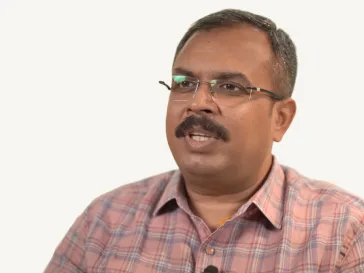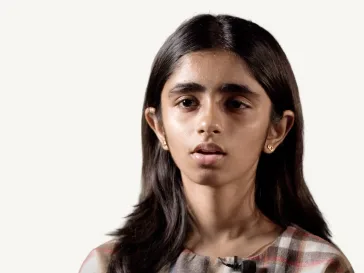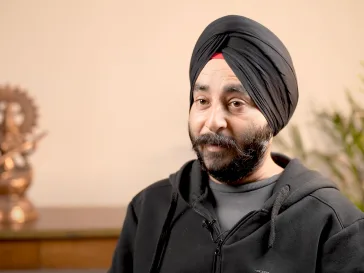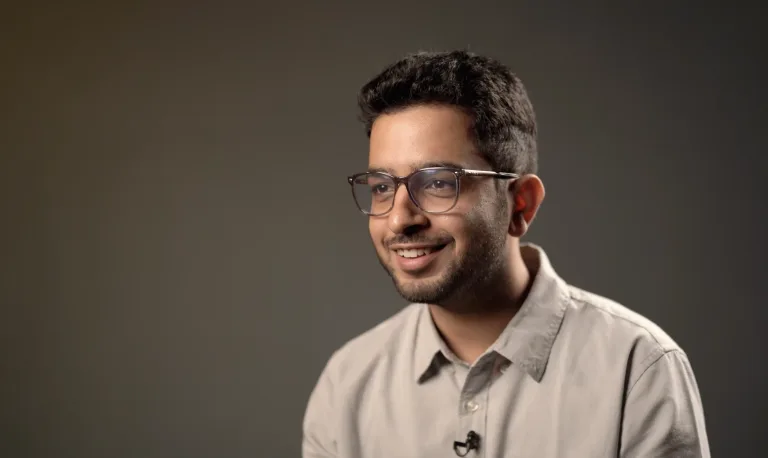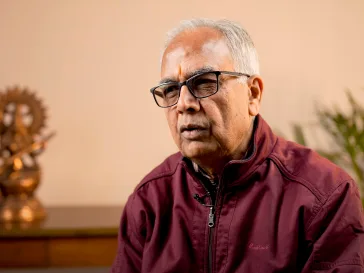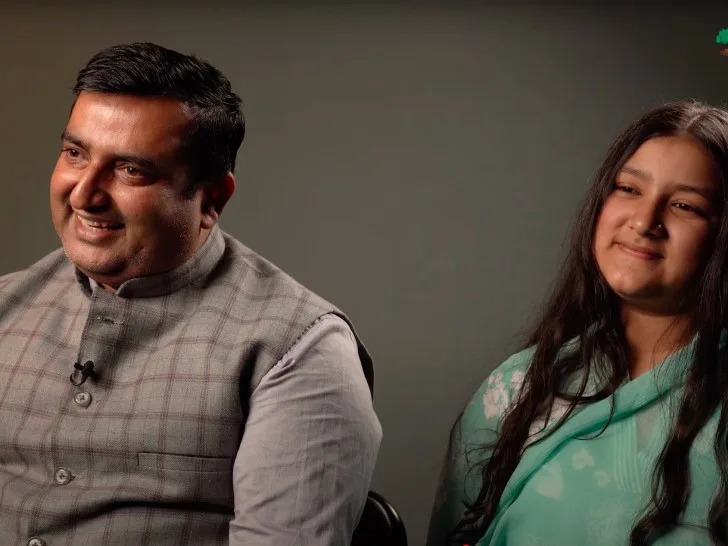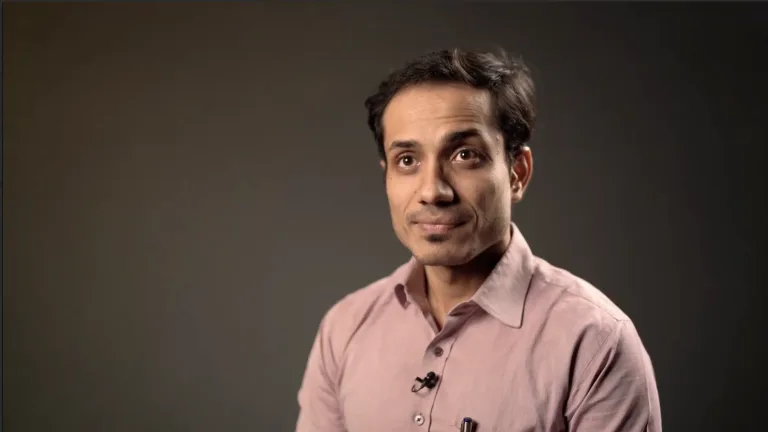Ahmedabad, Gujarat — For Jaydeep Patel, a 47-year-old paint manufacturing entrepreneur from Ahmedabad, the onset of acute pancreatitis in 2014 at the age of 34 was a stark disruption. What began as an acute medical event swiftly escalated into a relentless cycle of chronic illness, threatening not just his personal well-being but the very foundation of his family business. His narrative sheds light on the profound systemic gaps in chronic disease management and the critical search for enduring solutions beyond symptomatic relief.
The Unraveling Routine: Life Before Chronic Pain
Prior to 2014, Jaydeep’s life epitomized a common entrepreneurial rhythm. His days began at 8 AM, involving a 40-45 km commute to his factory, where he immersed himself in production planning, quality control of raw materials and finished goods, and order execution. His workdays extended until 7:30 or 8 PM, followed by late dinners and limited family time before retiring around 10:30 PM. This routine, while intense, was characterized by a distinct lack of dietary discipline. Meals were irregular, often delayed, and sometimes skipped entirely amidst work demands, a lifestyle he now identifies as “very undisciplined”. His pre-pancreatitis routine did not include specific dietary care.
The Onslaught of Attacks: A System in Distress
Jaydeep’s initial pancreatitis diagnosis in May 2014, while initially presented as a “swelling on the pancreas,” quickly revealed its insidious nature. USG revealed a minimally large pancreas, with elevated Amylase (101.4 IU/L) and Lipase (196.0) levels, and an MDCT showed a tiny calcific focus in the head of the pancreas. MRCP revealed a normal hepto-biliary tree and pancreatic duct. Despite doctors advising dietary precautions, he admits to reverting to his undisciplined habits after a brief period of adherence, underestimating the severity of the condition.
The attacks soon became a relentless feature of his life. Cumulatively, Jaydeep experienced “almost 10 to 11 attacks” over several years. A severe episode in November 2016 led to a six-day hospitalization. By January 2017, an ERCP attempted to place a stent but failed due to a structure in the MPD. The most critical attack occurred in November 2017, when his body had developed a resistance to common painkillers like Brufen and Ultracet. The pain persisted for three continuous days, plunging him and his family into profound despair. He described enduring nights “सिकुड़ के बैठा रहता था” (crunched up) in bed, unable to sleep, while his parents and wife wept secretly. At one point, the pain was so severe, and the despair so profound, that he contemplated jumping from the eighth floor of the hospital where he was admitted. This period saw him experience constant pain, managed by painkillers almost everyday.
This period of recurrent hospitalizations—with one extending to nearly seven days—significantly impacted his business. As the technical lead of his paint manufacturing unit, his frequent absences led his father to consider “वाइंड अप कर लेता हूं” (winding up the business). The family bore an immense financial and emotional burden, feeling “answerless, clueless” when his young son repeatedly asked, “आप कब वापस आ रहे हो?” (When are you coming back?) and later, “इसका कोई रेमेडी नहीं है?” (Is there no remedy for this?). His wife, in particular, suffered sleepless nights for three to four years, always vigilant for any sign of pain. His weight dropped significantly by 14.4 kg, from 96 kg to 81.6 kg.
The Search for a New Path: Beyond Conventional Limits
Faced with a situation where conventional medicine offered only pain management without addressing the root cause or guaranteeing relief, Jaydeep and his family began exploring alternative therapies in India, including Naturopathy, Homeopathy, and Ayurveda. Their search eventually led them to identify two Ayurvedic clinics in Uttarakhand, one of which was Padaav Speciality Ayurvedic Treatment Center.
Their decision to choose Padaav was influenced by several factors: Unlike another clinic that offered vague assurances, Padaav’s staff promptly requested detailed reports and current symptoms, demonstrating a clear understanding of pancreatitis. Crucially, Padaav readily provided references from four former patients, one of whom was a neighbor in Ahmedabad. This neighbor, Gopal Mehtaani, a 52-54 year old man, unequivocally stated, “आपको दुनिया भर में कोई जगह treatment नहीं कर पाएंगे। Other than पड़ाव। आप पड़ाव चले जाओ।” (No place in the world can treat you other than Padaav. Go to Padaav). This direct, trusted endorsement proved pivotal, providing the family with a crucial sense of hope. Despite prevailing societal skepticism towards Ayurveda, rooted in misconceptions about its effectiveness for severe conditions or potential for steroids, Jaydeep committed himself fully, believing that “श्रद्धा के साथ जाना पड़ेगा” (one must go with faith). He sought divine blessings at a temple before his journey, seeking strength for the Vaidyas at Padaav.
A Structured Regimen and Transformative Outcome
Jaydeep’s 21-day inpatient treatment at Padaav began in February 2017. The program transcended typical medical intervention, serving as a comprehensive re-education in lifestyle management. Under the guidance of Vaidya Balendu Prakash and Vaidya Shikha Prakash, Jaydeep adhered to a meticulously structured daily regimen: strict sleep schedules (10 PM to 6 AM), morning walks, and precisely timed meals. The dietary components were specific, including 100 grams of paneer at 8 AM breakfast, a light snack at 11 AM, lunch at 1 PM, a high tea-like snack at 4 PM, and an early dinner by 7 PM, concluded with light milk or specific items at 9 PM before bed. The dining hall was monitored by attendants to ensure patients followed their prescribed intake.
Crucially, Jaydeep’s wife, Sejal, who accompanied him, received practical training from Padaav’s culinary staff on preparing these specialized meals, including specific flour blends for bread and the avoidance of certain ingredients like tomatoes. This hands-on training was vital for ensuring the continuity of the dietary plan upon their return home. The experience for attendants was also positive, with comfortable sleeping arrangements and good food provided, a stark contrast to general hospitals.
Following the inpatient phase, Jaydeep continued his prescribed medication, which involved only two or three types of medicines for the entire year, significantly fewer than typical perceptions of Ayurvedic treatment. He maintained daily email correspondence with the Padaav team, who provided prompt feedback on any deviations. Their close monitoring extended to all aspects of his health, including weight, food intake, and sleep. During his stay, a sudden temperature drop caused a gastric problem and pain, but the Padaav team promptly managed it with specific medication and lemon water with honey, ensuring his recovery without further complications.
Arresting Progression: A Sustainable Outcome
The dedication to this new lifestyle and treatment yielded substantial results for Jaydeep. The pattern of debilitating pain and recurrent hospitalizations ceased. While minor digestive issues, such as acidity, occasionally manifest, they are readily managed, and the intensity of pain has dramatically reduced to merely 10-20% of its former severity.
Seven years after his initial treatment at Padaav, Jaydeep’s experience stands as a testament to the fact that chronic pancreatitis, despite its progressive nature, can have its advancement effectively managed and halted through a disciplined Ayurvedic approach. This intervention proved pivotal in enabling him to regain control over his life and career. He now successfully manages his own paint manufacturing business, and his passion for making varieties of tea and coffee, though he now mostly makes it for others, remains. He has even managed to maintain his strict dietary restrictions, finding ways to eat specialized food even when traveling extensively.
Jaydeep’s case illuminates several key elements in the successful management of chronic conditions:
- Integrated Care: Padaav’s methodology combines personalized Ayurvedic medication, including formulations based on specific minerals, with precise dietary and lifestyle modifications.
- Patient and Support Commitment: Jaydeep’s unwavering adherence to the prescribed regimen, even amidst initial despair and skepticism, was critical to his sustained health. The practical training provided to his wife facilitated this consistency at home.
- Structured Oversight: The vigilant and consistent monitoring by the Padaav team, providing timely guidance, was integral to ensuring adherence and addressing emerging concerns.
- Empathetic Engagement: The enduring support from the Padaav team, whom he now consults even for minor ailments, transformed his understanding of care. His wife noted feeling happy and positive after his 21-day stay, returning with hopes and plans.
A Life Reclaimed: Hope for Future Patients
Today, Jaydeep leads a full and productive life, free from the pervasive fear of pancreatitis. He confidently pursues his business and personal milestones, including his family’s future, endeavors that once seemed unattainable. He posits that pancreatitis should not be viewed as an “incurable” disease but rather as a “lifestyle problem” amenable to effective management. He feels “sky is a limit” now.
Jaydeep’s narrative offers substantial hope to individuals contending with chronic pancreatitis. It demonstrates that a comprehensive Ayurvedic strategy, underpinned by discipline and consistent support, can effectively manage the disease’s progression, empowering patients to reclaim their health and pursue fulfilling lives. He strongly advocates that those experiencing symptoms consider a consultation with Padaav, an experience that fundamentally shifted his and his family’s understanding of the disease.

